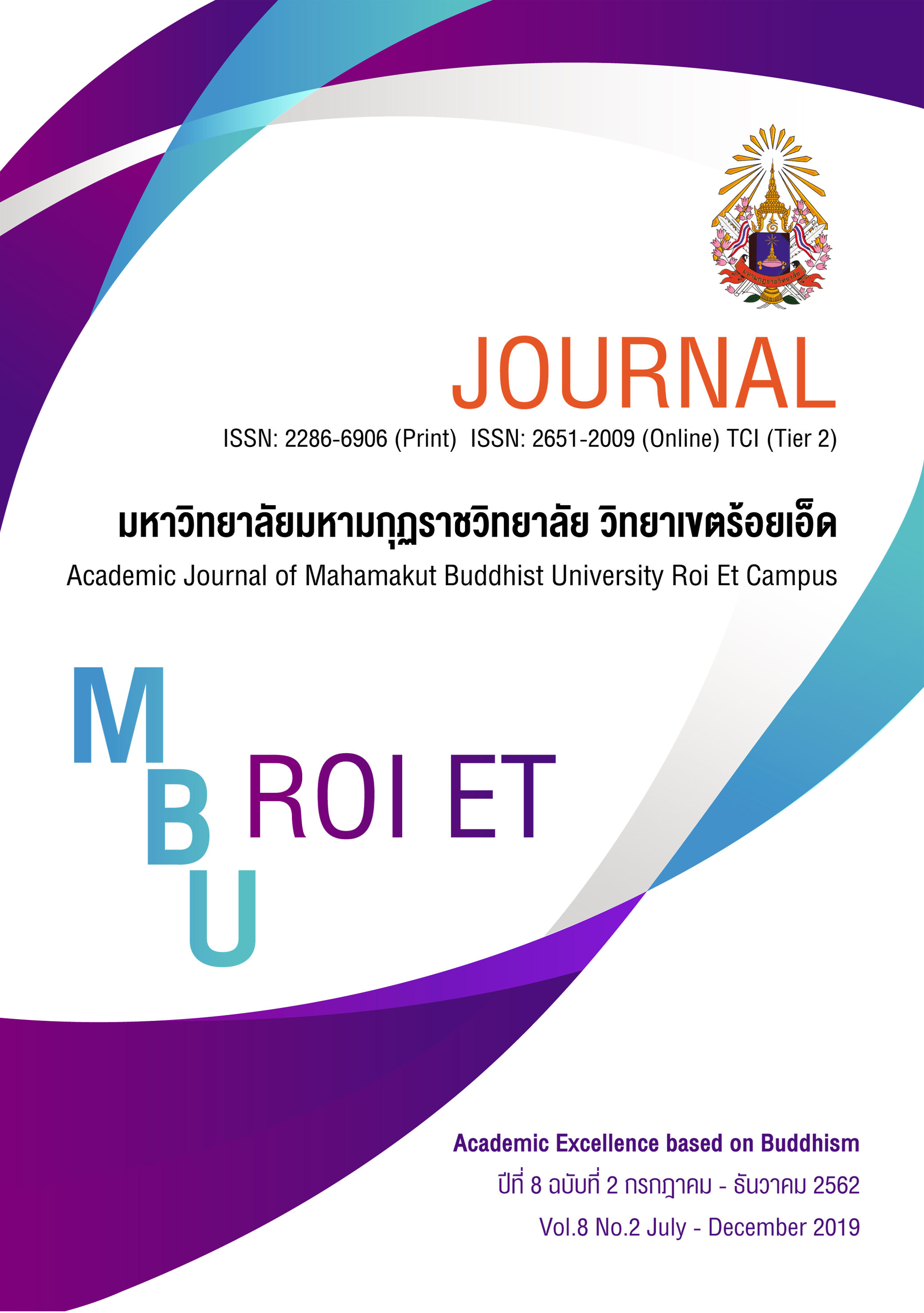The Model of Development Quality of Life According Path Dhamma of Inmates
Main Article Content
Abstract
This research, There are 3 objectives, 1) to study the opinions about development the quality of life according path Dhamma of inmates. 2) To study the development process the quality of life according path Dhamma of inmates. 3) To synthesize and propose model of development the quality of life according path Dhamma of inmates. It is a research by method merge Both quantitative and qualitative. Respondents are inmates Already in Lampang Correctional Institution For Drug Addicts number 291 people. Group Interviewees are monk, prison officer, and relatives of the inmates, Total number 9 people.
The research found it that : Opinions about development of quality of life according path Dhamma of inmates, There maximum mean of each side is, Side having kindness to the people around is, Inmates should support friend join destiny everyone give they seek advancement in develop oneself with good wishes(=4.30). Side of honesty in the organization people and jobs is, Inmates should intend internship assigned with integrity, transparency, verifiability (
=4.37). Side having patience to train yourself to be strong is, Inmates should promote themselves and their colleagues by training them knowledge in profession regularly(
=4.38). Side of the show of sacrifice for communal services is, Prisoners should always be ready to cooperate in work for public benefit (
= 4.31).
The Process develop of quality of life the according path Dhamma of inmates, found it that, Inmates should have good human relations, Build goodwill With sympathy per friends join fate, and with kindness, supportive per group, should be honest per the organization, People and Job by to have sincerity duty in act duty as assigned full by ability, and act as a good example, should have patience and strong to the crisis, by to show commitment, diligent in performing duties at assigned, and having steady in spirit, and should sacrifice serve the public by making self-useful, show readiness to work together for the common, abide the principle of benefit sharing.
Model of development of quality of life, Inmates should show good human relations per human around side, by the support to friend join all fate have seeking advancement in self-develop by best wishes, should have honesty to organizations, individuals and jobs, by intend in the internship is assigned with integrity, transparent, can detect, should show perseverance in self-training, give have patience and strong, by how to promote self-development and friends join work in side of profession always, and should show sacrifice, and create Benefit to public, by the way counseling inmates new by use verbal at polite, gentle, and behave towards new arrivals with generosity.
Article Details
References
เรียม ศรีทอง. (2540). มนุษยสัมพันธ์. กรุงเทพมหานคร : สถาบันราชภัฏสวนดุสิต.
สงวน สุทธิเลิศอรุณ. (2545). พฤติกรรมมนุษย์กับการพัฒนาตน. กรุงเทพมหานคร : ทิพย์วิสุทธิ์.
สมใจ ลักษณะ. (2543. การพัฒนาประสิทธิภาพในการทำงาน. กรุงเทพมหานคร : สถาบันราชภัฏสวนสุนันทา.
สำนักงานคณะกรรมการข้อมูลข่าวสาร. (2558). แผนปฏิบัติราชการกรมราชทัณฑ์ พ.ศ. 2559 – 2562. นนทบุรี : กรมราชทัณฑ์.
สืบวงศ์ พิทักษ์ธรรม. (2554). แนวทางการควบคุมและการพัฒนาพฤตินิสัยผู้ต้องขังคดีความมั่นคง.วิทยานิพนธ์รัฐประศาสนศาสตรมหาบัณฑิต. บัณฑิตวิทยาลัย : มหาวิทยาลัยสงขลานครินทร์.
สุชา จันทรเอม. (2542). จิตวิทยาการศึกษา. กรุงเทพมหานคร : แพร่พิทยา.
สุวัฒน์ มหัตนิรันดร์กุล และคณะ. (2540). เปรียบเทียบแบบวัดคุณภาพชีวิตขององค์การอนามัยโลกชุด100 ตัวชี้วัดและ 26 ตัวชี้วัด. เชียงใหม่ : โรงพยาบาลสวนปรุง.

